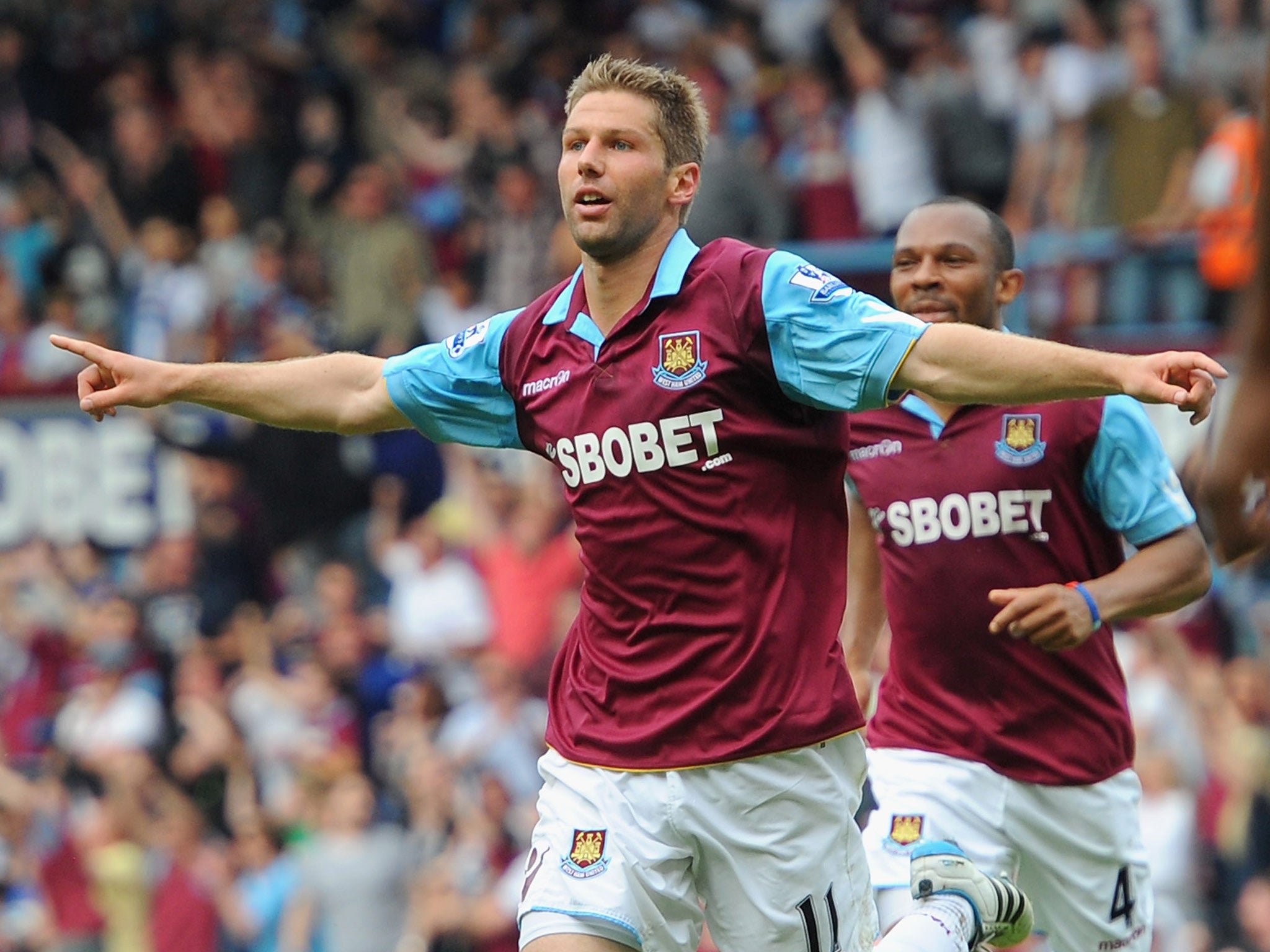Comment: Thomas Hitzlsperger has made a giant stride in moving the debate about homosexuality in football forward
The former Germany international has already begun to influence opinions as well as helping show the overwhelming support within the game

Take heed Phillipp Lahm. Take heed Reinhard Rauball. Take heed all those people who said that professional footballers could not come out as gay - that the reactions and repercussions would simply be too much to bear. Your argument, if not entirely disproved, has taken, to paraphrase Bjørge Lillelien, one hell of a beating.
Thomas Hitzlsperger’s coming out may only be a small step in the right direction. Yes, the former FC Bayern and Aston Villa player has been retired for four months. Yes, from the comments made by Oliver Bierhoff earlier today, it seems that he knew he would be better advised to retire before disclosing his homosexuality to anyone in the football world. But if the wave of support from hundreds of fellow professionals, politicians and commentators alike tells us anything, it is that his decision is a victory, not a setback, for tolerance in football.
Phillipp Lahm had thrown himself into the debate on several occasions. The Germany captain is among the many – Joachim Löw is another – who have needlessly been dragged into the mire of homophobia in football. Endless speculation over his own sexuality in certain corners of the German media led Lahm unwittingly onto a topic for which he was perhaps not cut out. Most notably in January of 2012, Lahm declared that “the football community is not ready to accept homosexuality as a normality”.
To be on Lahm, it probably wasn’t – and still isn’t, in very literal terms. His advice to gay players not to come out was certainly not malevolent, but it was certainly ill considered. Shortly before Lahm’s comments, the then president of the DFB Theo Zwanziger had given a lecture encouraging gay players to come out, arguing that the environment had reached a point where there was enough tolerance. Lahm’s comments, undoubtedly unwittingly, carried an air of the same fear which has led this topic to be taboo for too long, and achieved nothing but to set back the progress made by people like Zwanziger, and to plunge the rhetoric of the discussion once more into wary euphemism.
He was ineloquent, though, not wrong. Neither Zwanziger, nor Hitzlsperger, nor anyone else, would ever deny that there remains a severely outdated, testosterone laden norm in football which many other sports, and most other cultural endeavours, have managed to largely sideline. That Hitzlsperger waited until the end of his career is proof enough that there is enough prejudice in the stands and the tunnel alike to make life difficult for any openly gay, high profile footballer. But Hitzlsperger’s announcement has been greeted with far more support and praise than it has been with prejudice and intolerance.
No gay player should feel obliged to come out. Indeed, one point which seems to be overlooked when we are reminded that Hitzlsperger has retired, is that many people don’t feel mature, comfortable or brave enough to admit their homosexuality in public until they are well into adulthood. By coming out, Hitzlsperger has deliberately and knowingly politicised his own sexuality – in the interview with Die Zeit he admits that he chose to do it in the build up to the Sochi Olympics – and that is a responsibility which no one should ever be obliged to.
In doing so, however, he has achieved something that was needed desperately in professional football. Alongside Lahm, another primary offender in rendering the debate waffle-ridden and ineffectual was Reinhard Rauball. The President of Borussia Dortmund and the DFL had declared last summer that he would advise gay players not to come out. In light of today’s events, he altered his position, talking rather of the responsibility of clubs to defend any player who does wish to come out.
And there you have it. Rauball’s altered position is a far more constructive, far more accepting, and far less pressurised approach to take. It is the approach which takes the pressure of the gay players themselves to either come out or not, and puts the pressure on football to create an environment where they have the free choice to do either as they please. Within hours of coming out, Thomas Hitzlsperger had brought the debate forward, even in that small measure. He had forced Reinhard Rauball to change from sweeping, unhelpful foreboding to constructive, thoughtful solution making.
Long may the effects of Hitzlsperger’s wisdom thus continue.
Video: Hitzlsperger on being gay
Subscribe to Independent Premium to bookmark this article
Want to bookmark your favourite articles and stories to read or reference later? Start your Independent Premium subscription today.

Join our commenting forum
Join thought-provoking conversations, follow other Independent readers and see their replies